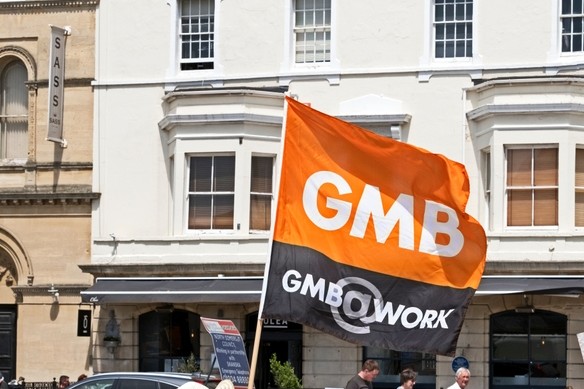A trade union representing nurses in England has demanded the government urgently returns to pay negotiations, after its members vote to reject the recent Agenda for Change wage rise offer.
Members of the GMB, which represents a variety of healthcare workers including nurses and ambulance staff, voted by a majority of more than two thirds (67%) to reject the offer of a 3.6% pay rise.
The 2025-26 offer, tabled by the government in May, covers all staff on Agenda for Change contracts including NHS nurses, midwives and nursing support staff.
Unions criticised health and social care secretary Wes Streeting when the offer was first announced, airing concerns it was insufficient to address concerns that nurses and midwives have about their pay packets.
The unions, shortly after, announced they were balloting members for their opinions on the pay offer, the results of which could inform whether the NHS will be hit by further industrial action.
The GMB, which is one of the three largest affiliates of the Labour Party, is the first union in England with nurse members to announce the results of its consultative pay ballot.
With the majority of voting members rejecting the deal, the GMB has now written to Mr Streeting calling for an “urgent meeting” to discuss pay and other “issues of significant importance” to its NHS members.
GMB national secretary Rachel Harrison said the letter to the health secretary was informed by a meeting of the union’s National NHS and Ambulance Committees.
“We await his reply with interest,” said Ms Harrison.
Nursing Times has contacted the Department of Health and Social Care (DHSC) for further comment.
The Royal College of Nursing (RCN), Royal College of Midwives, Unite and Unison, which also represent nursing staff in England, are expected to announce the results of their consultative ballots soon.
RCN general secretary and chief executive Professor Nicola Ranger previously hinted that, should her union’s consultative ballot return a ‘no’ vote, a formal strike ballot could be triggered and said that nurses’ consciences would be “clear” if walkouts were to happen.
Meanwhile, the Welsh branch of Unite, at the start of July, voted to walk out over the devolved government’s pay offer for NHS staff.
A five-day walkout by resident doctors – formerly known as junior doctors – began today in the latest strike in their long-running dispute over pay.
The last few days have seen increasingly fractious language used by the government and the British Medical Association, whose members are unhappy about a 5.4% average pay rise this year.

